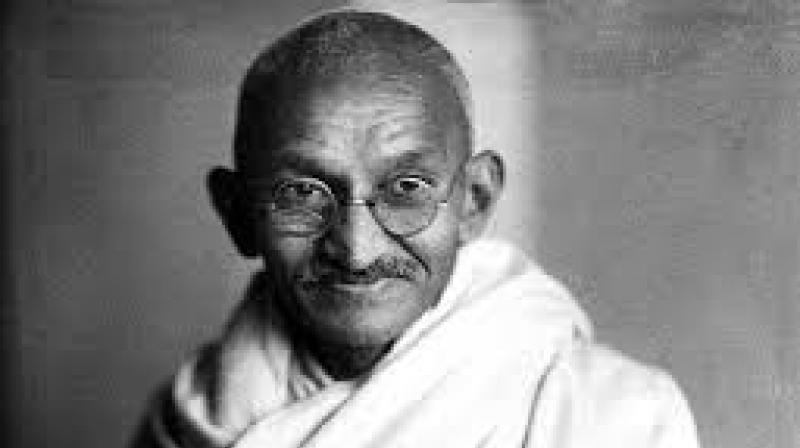All Indians must celebrate Gandhi's 150th birthday

Not all of Mahatma Gandhi’s thoughts, ideas or ideals were logical, scientific or practicable — specially his earliest writings, like Hind Swaraj, critiqued by his favourite disciple Jawaharlal Nehru. And yet there was enough stuff in the man to make his thoughts, actions and words appear sensible, deeply moral and worthy of emulation over 70 years after his assassination by a crazed Hindu fanatic.
Gandhiji continues to inspire every section of India, richest to poorest, even in our fast-changing, technology-driven times when consumerism is king. The Mahatma felt deeply about his mantra of non-violent resistance, his commitment to truth irrespective of the cost, and his belief that all policy be judged by the effect it had on the last person in even now touch people everywhere in a world riddled with conflict. Hedonists, Marxists, anti-Marxists, environmentalists and votaries of practically every cause remember Gandhi. It’s a matter of satisfaction and deep pride that this half-man, half-saint was one of us.
The Centre has done well to start preparing to celebrate his 150th birth anniversary in 2019. President Ram Nath Kovind took the first step Wednesday by asking a conference of eminent Indians and global thinkers to chart the course for the project. It’s a pity some key invitees, including Congress leaders Sonia and Rahul Gandhi, could not attend, presumably due to other commitments. To make this truly representative of all of India, prominent Indians from all walks of life must participate, rising above partisanship. In the time we have the government must involve ordinary people too in remembering the Mahatma, and take events out of conference halls and the seminar circuit. A start can be made by incorporating Gandhiji’s actions, thoughts and achievements, as well as failures, in school and college courses in a creative way so that young people can have a critical appreciation of the man of whom Albert Einstein said it was unbelievable such a man had walked the earth.
Gandhi must be understood, not just ritualistically followed and remembered only on special days. Scholars, artists, politicians and activists of all kinds and those labouring in farms and factories must be associated with his 150th anniversary.
There were moments in Gandhi’s life when he felt the urge to work only to end untouchability, and not spend his energies on India’s political liberation from colonial rule. He tirelessly propagated “gram swarajya”, and individual liberation was in everything he worked for. Indeed, all strands of his thought were entwined with his idea of salvation. Gandhi was deeply religious, a committed Hindu.
There was also no greater nationalist. And yet he wasn’t a Hindu nationalist. It’s is important to remember this today along with his passionate commitment to ending untouchability and his strong support for the equality of men and women. When we remember Gandhi, we ennoble ourselves. The Mahatma looked beyond governments and parties, and stood for society and human dignity everywhere.

